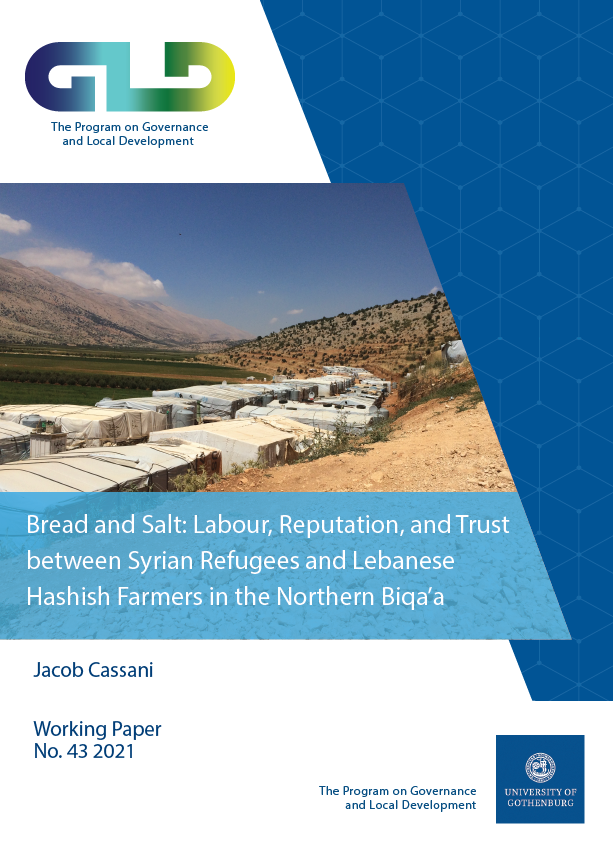No.43 Bread and Salt: Labour, Reputation, and Trust between Syrian Refugees and Lebanese Hashish Farmers in the Northern Biqa’a
Jacob Cassani
Abstract
This paper addresses the intersection between forced migration, labour markets, and governance. Drawing on extensive fieldwork amongst Syrian refugees in the Northern Biqa’a Valley, Lebanon, the paper argues that understanding ‘refugees as labourers’ is central in explaining practices of both Lebanese villagers and Syrian refugee camps. This article builds on the findings of recent labour ethnographies in the Levant (Chalcraft, 2009; Proudfoot, 2017; Sajadian, 2020; Saleh, 2016; Turner, 2016) to demonstrate the centrality of labour-capital relations to understanding the governance of newly settled communities. Labour is a fundamentally important feature in the life of a camp, interacting with and underpinning other patterns of interactions based on, for example, state apparatus, infrastructure, and inter-tribal conflict. The article presents and analyses four ethnographic vignettes of typical economic partnerships between Lebanese landowners and Syrian refugee-labourers in rural Lebanon. Each relationship entails a pattern of mirrored capacities and weaknesses, structurally replicated throughout rural Lebanon, creating an environment of labour insecurity and heightening the value of long-term, trusting relationships.
